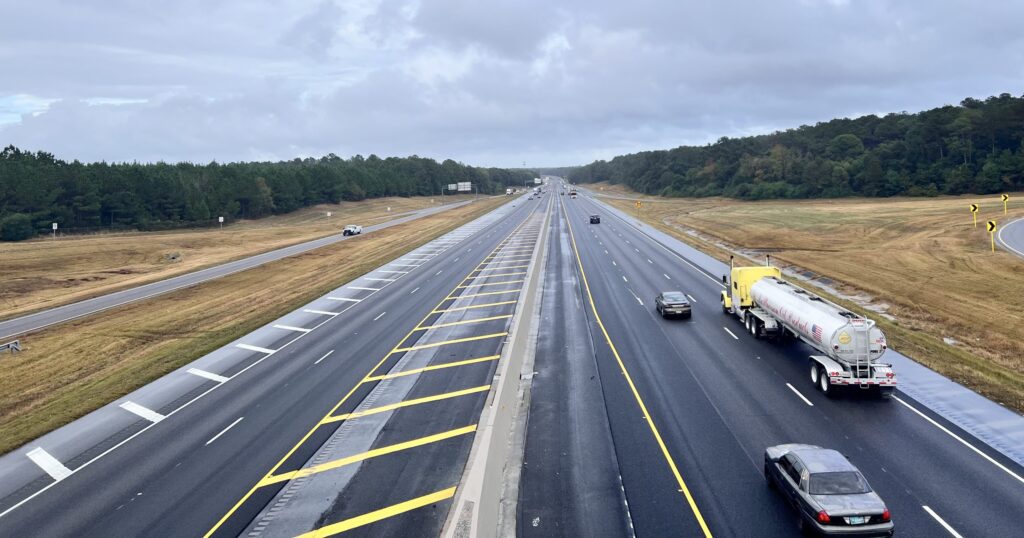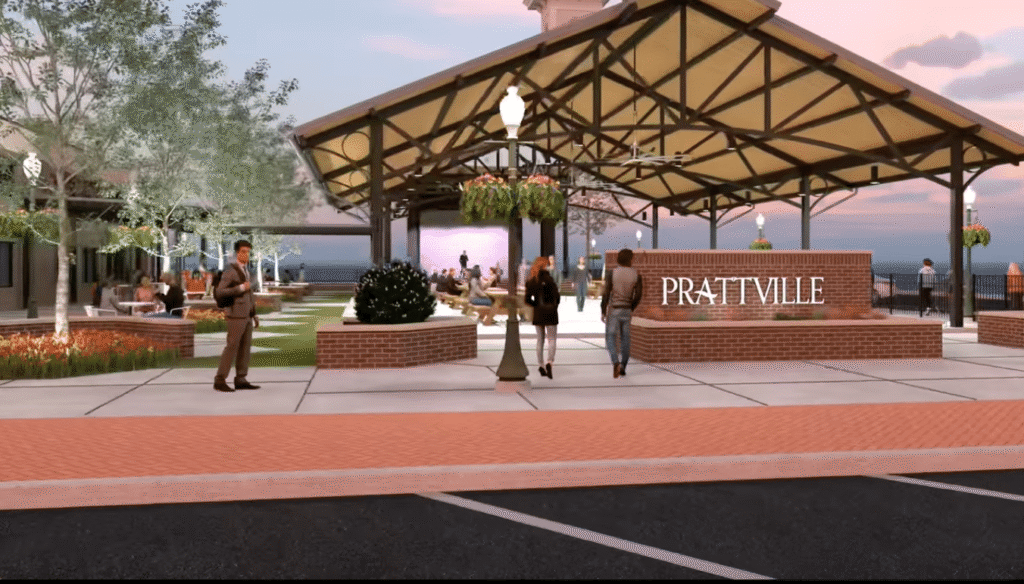Reviewed by: Patience Itson
THEN + NOW: How Mobile’s changed over the years [PHOTOS]
Reading time: 4 minutes
Sponsored

DYK the City of Mobile is older than the state of Alabama?
We consulted with the Alabama Public Archives in Mobile to learn more about the city’s impressive evolution from 1702 to now. Read on for a before-and-after look at five of the city’s most historic places.
Want to see all this history live and in person? Book your stay in the Port City now.
1. Government Street


Government Street—part of U.S. Highway 90—offers a beautiful first glimpse of Mobile when exiting the Bankhead Tunnel.
Though it’s always been the place where government business is conducted, what has changed is the homes.
Back in the day, the “upper crust” of Mobile society would build gigantic, sprawling mansions along Government Street. Most of the massive homes were lost to time, torn down in favor of newer builds.
Fun Fact: The homes you still see today were originally considered “middle-class.”
While many residences are currently private, you can get a glimpse inside some of these illustrious mansions by going on a historic home tour guided by the Historic Mobile Preservation Society.
Another way to sneak an inside peek is by visiting the Mobile Carnival Museum, also in a historic home on Government Street.
2. Bienville Square


Bienville Square has been a central gathering place for Mobilians since the 1850s. But its history goes back even further.
In 1824 (exactly 200 years ago!), the United States Congress dedicated the parcel of land now hosting Bienville Square as a public park.
Named after Mobile’s French founder Jean-Baptiste Le Moyne, Sieur de Bienville, the park is surrounded by some of the city’s most iconic streets—N Conception, Dauphin, St Francis and St Joseph.
Despite its age, Bienville Square’s design has largely remained the same—a fountain at the center, with benches and a live oak canopy providing shade over most of the park.
During Mardi Gras, Bienville Square is always packed with families trying to secure a great viewing spot to watch parades roll through.
3. Mardi Gras


Mardi Gras started in Mobile, and while it’s only celebrated for two months of the year, it’s a whole lifestyle here.
Following the Civil War, Mardi Gras was kicked off in the Port City by one man—Joe Cain.
Dressed as the fictional Chickasaw Chief, Chief Slacabamarinco (try saying that five times fast), Cain paraded the streets by his lonesome to revive Mardi Gras post-war. We’ve been celebrating ever since.
For two full months, the city as we know it shuts down and revelry begins with parades, balls and festivities at every turn.
Hotels get booked years in advance for Mardi Gras every year. Fat Tuesday 2025 is set for March 4—book your stay now.
4. Port of Mobile


The centerpiece of money-making in the Port City lies at, you guessed it, the Port. The natural seaport and peninsula here drew the French to colonize the area.
The Port is also credited with saving the city from bankruptcy after the Civil War.
By 1928, the version of the Port we know now was complete. It’s estimated to bring in nearly $99 billion worth of economic value to the state annually.
5. USS Alabama


The USS Alabama, or “The Mighty A” is an authentic, retired World War II ship now functioning as a top-tier museum.
The “Heroine of the Pacific”, as she was deemed, earned a whopping nine battle stars for meritorious service during the war.
After the war, her future was uncertain. By the 1960s, the Alabama and a few of her sister ships were destined for the scrapyard. That changed when schoolchildren across Alabama collected change to pay for her voyage home.
By 1964, the Mighty A was home in Alabama. The next year, Battleship Memorial Park opened to the public.
Today, the park boasts a Vietnam War memorial, another warship, the USS Drum and many warplanes dotting the grounds.
Plan your trip to the USS Alabama.
Want to experience Mobile yourself? Book your stay now.
Sponsored by:








